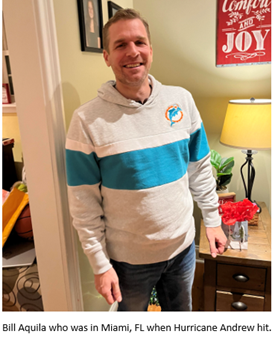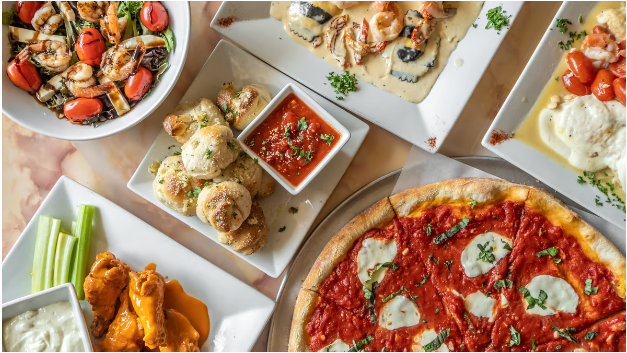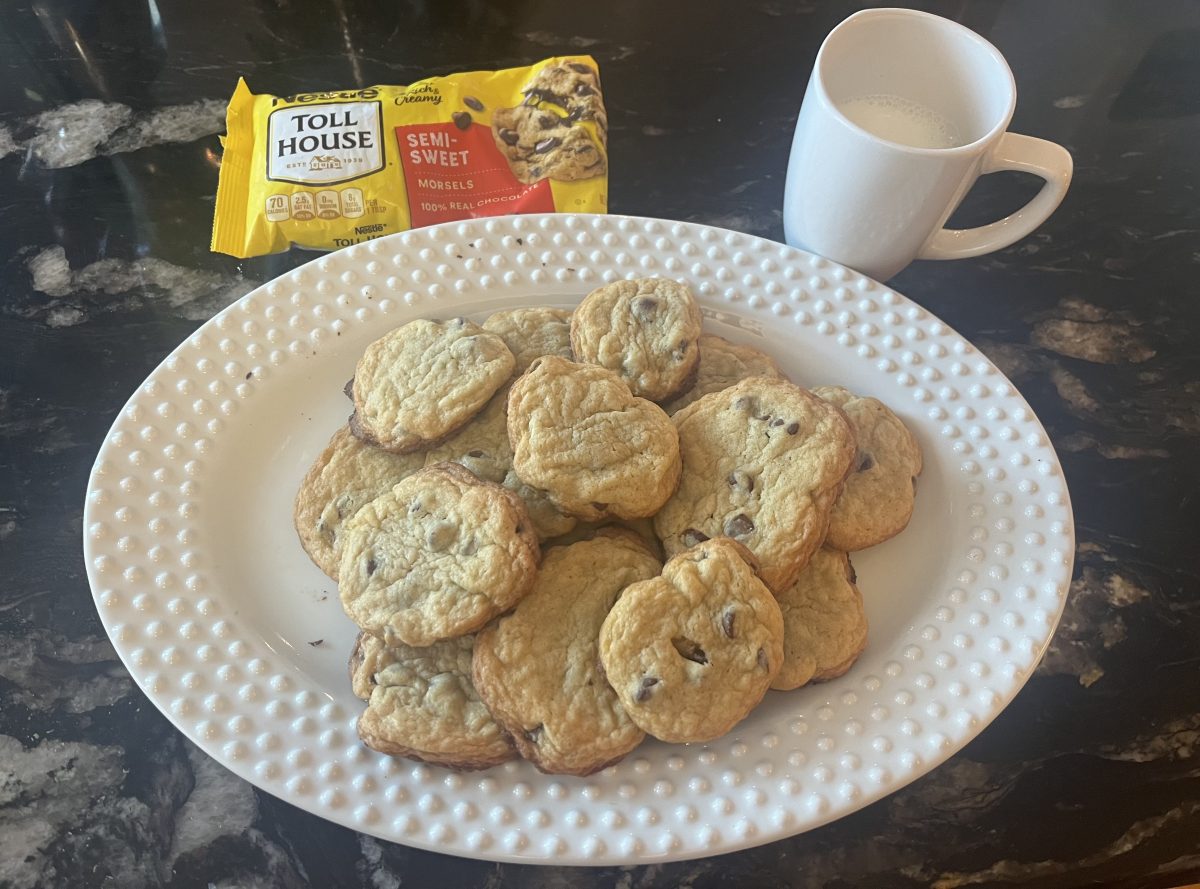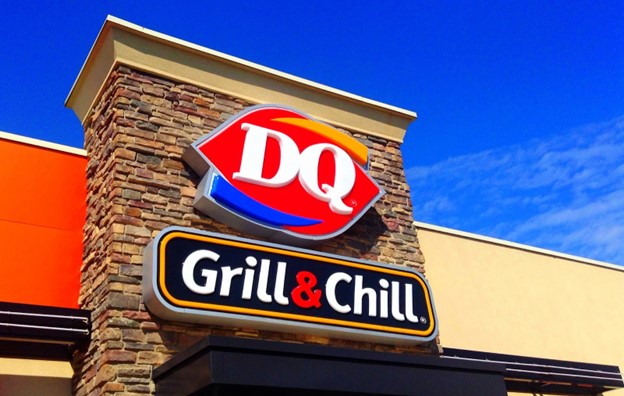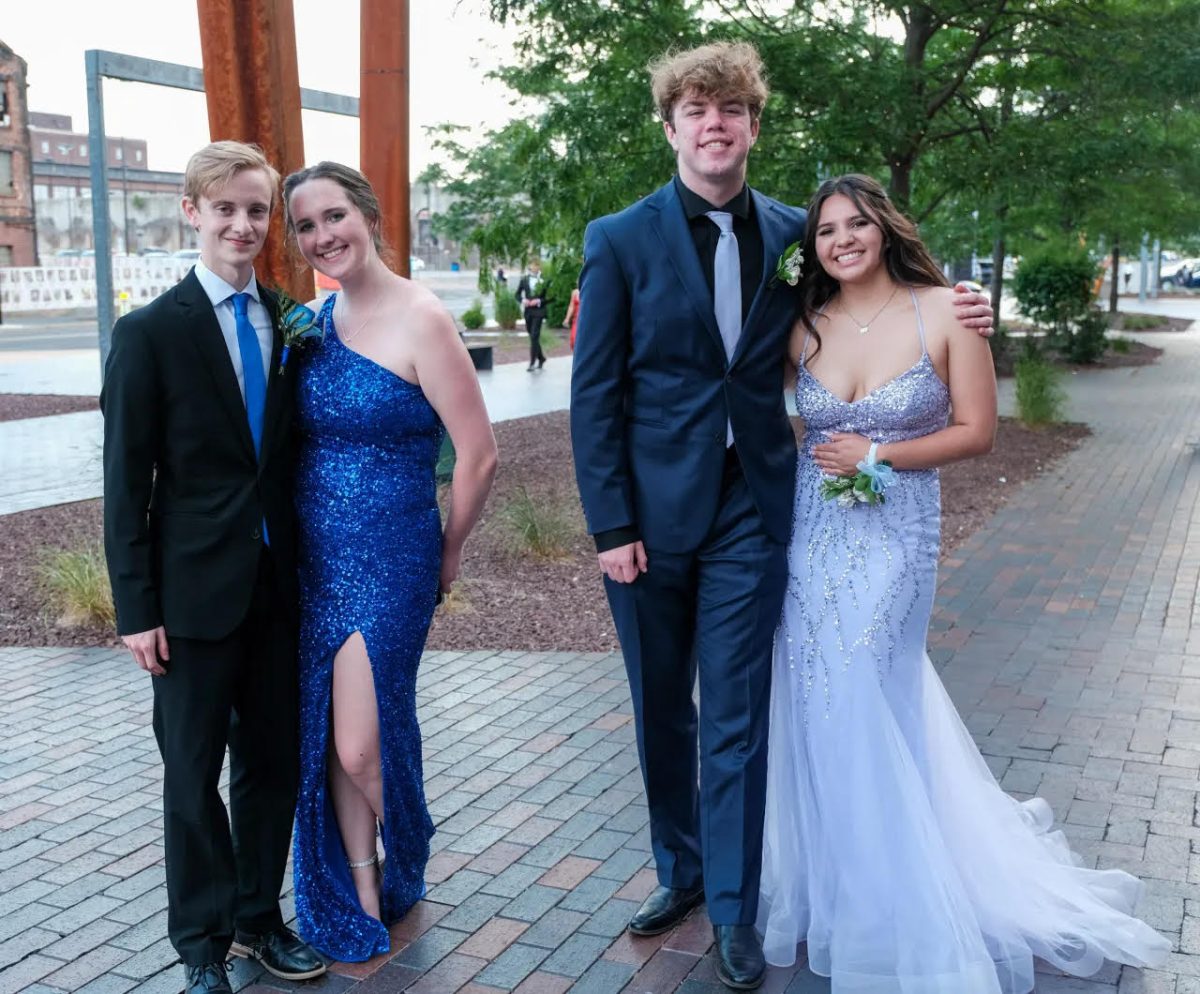Everything is dark. You’re sitting by yourself, only with a flashlight waiting for what will come next. As a 17-year-old in Miami, Florida, Bill Aquila never dreamed that he would have to go through something like this. That’s when he heard a groaning sound from above his head, and he knew that the roof of his condo complex was being ripped off. With winds up to 175 miles per hour, Hurricane Andrew raged through Miami on the evening of August 24, 1992, lasting until the early hours on the morning of the Aug. 25. The winds caused catastrophic damage to what was in the way of the natural disaster, leaving Aquila with his aunt and grandmother being part of the 1.4 million who lost electricity and an even greater population who lost so much more. Causing $25.3 billion in damage in Florida alone, Hurricane Andrew is an event that was drilled into Aquila’s mind, still impacting him today.
After tracking the hurricane for a few days, Aquila and his family decided it was time to prepare. They got five days worth of water and food, filled up the bathtub for all purposes, and plywood for the windows. “It was pretty eerie going to Home Depot,” said Aquila. “One piece of plywood was now $200 instead of $10.” Andrew then started around 5 p.m., and Aquila went outside, excited to see his first hurricane. “I remember overlooking a balcony and saw all the palm trees go ‘wa-bam’ from the wind and that was the first inkling like ‘oh this is going to be different’.” Then, the power went out. When thinking about how he, his aunt, and grandmother were waiting for what could happen next, Aquila recalled how “…around nine at night the wind really picked up, and they say it sounds like a freight train and I understand why they say that; you don’t understand how loud it can get.” It wasn’t just the wind that was making the noise, either. In Miami, a lot of the roofs are made of clay tiles, so when the wind got strong enough, the whole roof would be picked up and shatter into what was closest to it, including windows. This was when Aquila’s aunt told him to go hide in a closet, which she then covered with a mattress. While looking around with his flashlight, Aquila heard the sound of the roof being ripped off the third floor of the condo he was in, which started to shake the walls. An outlet and its cover then shot off the wall, narrowly missing him in the face. “It’s hard to explain stuff like that. You don’t think it could be a thing.” Around four or five in the morning, Hurricane Andrew started to subside.
Aquila and his aunt and grandmother were very relieved when things calmed down, and not just because of the damage that had been done to their home. “You get so tense that you become exhausted by it,” explained Aquila when talking about the constant noise from smoke alarms, wind, and objects being destroyed. “You’re just sitting there waiting for it to end thinking, ‘Maybe I’ll make it through, maybe I won’t’ which is an awful feeling to have, especially at 17.” Little did he know that the hurricane itself would be only half of what he would experience. When they walked outside, it looked like their neighborhood had been bombed. Everything had been turned into rubble, there were barely any standing trees, cars had holes in them, no one had a roof, ponds of water had formed, and people were left shell-shocked. Aquila vividly remembers a stop sign that had been pulled from the ground, eventually impaling a nearby tree. For the first two days after the hurricane, Aquila observed how “downright inspiring” everyone was acting. It didn’t matter if you knew them or not, people were bending over backward for one another by sharing supplies or helping one another move debris. Unfortunately, that didn’t last long and soon everyone turned on one another. Masses of people were looting stores or their neighbors to get supplies for themselves and their families. Aquila recalls driving by a gas station and seeing people walking around with baseball bats and guns looting the store, with police unable to do anything since the number of people participating was too large. On another trip in his car, there was a water truck that was at the church where Aquila used to work which had been turned into a distribution center, and it was trying to get further south so Aquila led the way. Once he got there, what he saw looked like it was out of a war movie. The National Guard was there with tents, barbed wire, guns, and so much more. There were lines of people waiting to get food and water, all of this being “…nothing like I expected to see, especially at 17.”
Aquila went back to his home in Connecticut two weeks after the hurricane had hit. The day before he left, his aunt and grandmother got their power and water back, however, some people weren’t as fortunate. Hurricane Andrew had a devastating impact, occasionally wiping out towns completely that never recovered. This damage was overwhelming compared to that of Superstorm Sandy in Pennsylvania in 2012. Charles Lainhart, a teacher at Pennridge High School, had just moved into a new house with his wife when Sandy hit, and experienced minor flooding in the basement, power outages, and one hole in the very top of his roof. The storm and what came with it was “…everything I expected,” unlike what Aquila experienced in Miami. When told what Aquila had to go through, Lainhart commented, “I’m glad I don’t have to know what it was like.” Lainhart remarked on how calm Aquila kept himself during the situation saying, “There’s not much you can do but hunker down and hope for the best.”
Hurricane Andrew not only affected Aquila at the moment, but it still does to this day. He said it had a huge impact on life and how “Bigger picture it made me far more aware of what we consider normal civilization and complete chaos; when the supplies (food and water) weren’t there I was surprised how things just shut down.” When Covid hit in the spring of 2020, Aquila went to the store and got enough food that could last him and his family for weeks. He then made a second pantry in his basement to store all the food, from shelves for cans to freezers for meats. “I didn’t think they (the store) would actually run out of food,” Aquila said, “I just did it so I wouldn’t have to be with other people at the store in case it was like it was in Miami.” The riots and lootings that he had to face after Andrew made a tremendous impact on Aquila. To this day, he is always prepared for any adversity that might come his way.
Sources:
https://www.weather.gov/lch/andrew
https://www.weather.gov/mfl/andrew
https://www.britannica.com/event/Superstorm-Sandy
https://www.pennlive.com/midstate/2012/10/hurricane_sandy_the_worst_is_o.html
https://www.pennlive.com/midstate/2012/11/pennsylvania_damage_estimate_f.html
